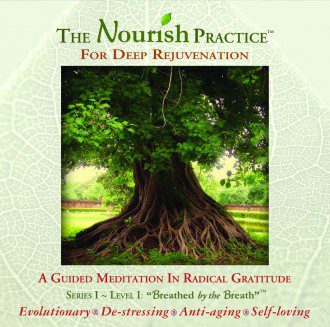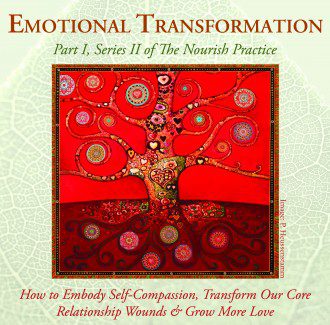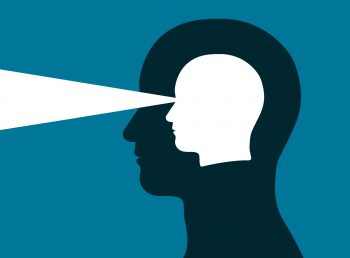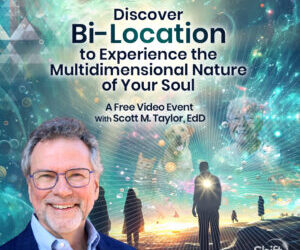April 26th, 2017
Contributing writer for Wake Up World
Intuition: from the Latin “intuir”, meaning ‘knowledge from within’.
Intuition can be a helpful resource. It can offer direction, especially when the way is unclear, or when the path forward and towards healing proves circuitous. However, intuition is often glorified, often to our peril, if we rely on it exclusively and hold it too preciously. Intuition has its place, but — just like our thoughts and feelings — we might consider being more careful about the “truth status” we attribute to our intimations and gut feelings.
Intuition is not an infallible crystal ball of truth. It’s not an island of magical truth-bearing that lives in a precious, untainted domain of our soul. It is a rudder and way forward when we are unclear: a quiet voice, a sense of what is right, or what we need. Often, however, this voice can and should be informed and updated by all our other faculties, especially good reasoning, when possible and appropriate. The times it may not be appropriate to question intuition include when we can’t get reliable information through reason and direct observation, or when we want to take a risk without logical discernment, or when we don’t have time and need to act quickly.
Consider an example: getting together with a romantic partner. You might have the intuition that someone isn’t right for you, yet you convince yourself that it’s okay, using reason and justification. A couple years later, you break up and you might remember your initial gut feeling about him or her — that it was wrong from the get-go. You might conclude that you didn’t follow your intuition and resolve to follow your gut next time. But if you were to look at select days during the relationship when things were clicking, what might your perspective of your intuition have been? Different than your final conclusion that your intuition was wrong, perhaps.
The point being, we stand by our intuition when it works out well for us, yet often casually dismiss situations that indicate our intuition was inaccurate. This leads to the common jading of intuition and holding it unrealistically precious.
Either way, if you spend a couple years together and a lot was learned, how wrong could your intuition have been? We need to go through challenging experiences to grow, even if our intuition initially tells us differently. A more helpful way to frame such experiences could be not to view them as right or wrong — thereby holding intuition and other decision-making hostage to the black-or-white result — but as unconditionally right for growth and learning.
When we get hurt, as in the ending of a relationship, it’s easy to say, “Oh, I should have followed my intuition.” But is this really true? Maybe we are just trying to make some sense of feeling hurt. Perhaps we need to reframe our experience and the pain itself. Being in a relationship that doesn’t work out isn’t a failure, nor are the months and years “wasted.” We did it, we lived, we experienced, and we grew and learned, and we still are. Pain isn’t always, or ever, a bad thing; it helps us grow, deepen, and learn in ways that happiness can’t teach us.
A gut sense
Our gut sense is not always correct. Intuition can lead us dead-astray, because not all our feelings and subtle intimations translate to what’s best for us, or what is true about the world — just as all our thoughts are not accurate. Some propose that because of all the neurons in our gut we actually have a “brain” of sorts down there. But this is not the kind of cognition and truth-sussing that our gut (intestines) can do, as discussed in this Scientific American article.
My intuition might tell me to go get a loaf of bread before heading home. Upon arriving home, my wife might have already gotten some bread. “Oh well, we have doubled our supply,” I might comment, never bothering to notice that what I might otherwise call my intuition was wrong. But if my wife hadn’t gotten bread, then I might think that my intuition was a super-sensory sixth sense that knew something invisible to the rest of me. More likely, it’s that some part of me remembered we needed bread and I took the chance to buy some. My intuition can double our efforts, while other times I’ll bring home what my wife didn’t. My “intuition” can therefore be right and wrong.
Another example: I might intuit that someone is a good person, or that I should not go on that boat, or that a new business venture is really scary. If I interpret these intimations as truth, then I might indeed be knee-jerk reacting to fear, vaguely responding to past conditioning that holds a categorical remembrance of scary events — which is how unconscious conditioned fear operates neurobiologically. The present situation, however, might require me to a) move through a fear (feel the fear and do it anyway), b) look more closely at what my initial reaction is, and c) take a risk that the present won’t play out as I fear it will.
Intuition — as the felt-sense, “whisper from our soul,” gut feeling, or “call” that we register in thought or feeling — is most reliable when fact-checked and, if possible, tested against reality. An article in Brainpickings on intuition says, “Cognitive scientists treat them [intuitions] as quick first assessments of a given situation, as provisional hypotheses in need of further checking.” When information about a decision or assessment of something lines up, for the most part, we can usually get a better sense of what the best choice might be.
For example, if I fear getting on a boat, it could do me good to consider why it’s so. Is the boat safe, are the seas calm enough, is the captain capable? Significant doubt or concern in any of these could lead me to investigate and discover more information, which facts can then inform my decision beyond just my gut feeling; this gives my intuition corroboration in reality.
So, I don’t think our gut feeling intuitions should be discarded, nor do I think they should be treated as crystal ball divinations. Somewhere along the spectrum seems best and most prudent, depending on what we ascertain by other information-gathering faculties and the time we have to do it! And when we don’t have anything else to corroborate or debunk our gut feelings, we get to take a chance. Whatever the outcome, it’s likely a mistake either to glorify, or outright deny, our intuition’s role in the outcome.
What is intuition?
Intuition is actually a conglomeration of many cognitive processes interacting to convey information registered by our “inner ear” (read: conscious mind) as a voice, hunch, instinct, or message. Contrary to popular belief, it is not this isolated, special, precious, soulful place inside us independent of thought, memory, passing feelings, and conditioned learning. In fact, intuition gets better the more we learn about our world and ourselves.
Here are some snippets from the previously mentioned article on intuition:
“However, these days cognitive scientists think of intuition as a set of nonconscious cognitive and affective processes; the outcome of these processes is often difficult to articulate and is not based on deliberate thinking, but it’s real and (sometimes) effective nonetheless.”
“Think of it this way: intuitions, contrary to much popular lore, are not infallible. Cognitive scientists treat them as quick first assessments of a given situation, as provisional hypotheses in need of further checking.”
“Moreover, intuitions get better with practice — especially with a lot of practice — because at bottom intuition is about the brain’s ability to pick up on certain recurring patterns…”
Sometimes, intuition guides us into the unknown when nothing certain can be known from where we currently stand. And we continue walking one foot in front of the other, with intuition and our best senses and good thinking in tow.
If you are tempted to glorify intuition, perhaps you can appreciate not only when intuition is right, but all the times it isn’t. If we hold the view that our intuition is a sixth sense, or a special, largely unpolluted faculty of our “spiritual self,” this belief might cause us to give it a very special place in our life, albeit undeserved. We might therefore be unwilling and unconsciously biased against noticing when our intuition about things is wrong. We might also be reticent to “tamper” with our intuition by applying critical thinking to it. After all, we wrongly presume, our minds are tainted, unlike the crystal ball of intuition lying deep inside our “wisdom body.”
Ironically, when we learn that our intuition isn’t all the magic it’s cropped up to be, these pretenses can crumble and we can rest in a more grounded and realistic appreciation of our different ways of learning about ourselves and the world. Why would we want to do this? Because living closer to what is true is more rewarding and more effective and more likely to bring us fulfillment than living in ignorance. Look at Donald Trump’s anti-science stance if you want a quick example.
So, it’s probably best not to glorify intuition as a god. It’s actually not so magical, unless we consider of all our otherwise ordinary sentient faculties just as magical. Intuition relies on past experience, which is full of fear and success, mishap and fortune, and therefore, not always the best gauge for ascertaining the present moment and what’s just ahead. Since intuition is informed by our past our traumas and fears, it can also limit our “sense” of things.
When we understand that our intuition is not immune to previous learning, and sometimes governed by it, we can also refine our appreciation for what we hear from the voice of our intuition. For example, if I am attracted to someone who reminds me of my last girlfriend with whom I had a painful ending, my intuition might say to me, “Stay away.” When I recognize that this might just be my fear speaking, take that in and let it integrate, then maybe I could notice a more subtle aspect of my inner voice or instinct that says, “Give it a try.”
What we deeply fear can prevent us from encountering a new experience that is not truly dangerous or bad for us, but just feels this way because it reminds us, however unconsciously, of the past. By the same token, what has brought us happiness and good luck in the past can arise in us via intuition. We may get a yes to move forward, when in actuality the present is full of danger… yet we might proceed confidently and unconsciously at our peril because our past positively informs us through what we think is our intuition. And it is our intuition, just perhaps not the magical, glorified truth of what we attribute to this interdisciplinary faculty of our nervous system and its physiology.
So, props to intuition. And, when possible, let’s not neglect our five basic senses, our emotional and external cues, and rational thinking to augment the information coming to us intuitively. This way intuition is neither glorified nor dismissed, and finds its appropriate role in informing us through the many twists and turns life presents to us.
The Nourish Practice

Jack Adam Weber’s “The Nourish Practice” is an easy, guided meditation-Qi Gong practice in radical gratitude and self-love. It is an Earth-based, body-centered practice — at once physiological and mythological — that is deeply relaxing and replenishing, especially for modern-day burn-out syndrome, and requires little physical effort. “The Nourish Practice” resets your nervous system and fosters a rich inner life.

You can purchase The Nourish Practice as a CD or Digital Download here.
The first installment in Jack Adam Weber’s new “Emotional Transformation” series, entitled “Healing from Heartbreak”, is also available here — a valuable guide to embodying self-compassion, healing and love.
About the author:
 Jack Adam Weber, L.Ac. is a Chinese medicine physician, author, celebrated poet, organic farmer, and activist for body-centered spirituality. He is also the creator of The Nourish Practice, an Earth-based rejuvenation meditation, and Healing from Heartbreak, the first installment in his “Emotional Transformation” series.
Jack Adam Weber, L.Ac. is a Chinese medicine physician, author, celebrated poet, organic farmer, and activist for body-centered spirituality. He is also the creator of The Nourish Practice, an Earth-based rejuvenation meditation, and Healing from Heartbreak, the first installment in his “Emotional Transformation” series.
Weber is available by phone or online for medical consultations and life-coaching.
You can connect with Jack at:
- Website: JackAdamWeber.com
- Facebook: Facebook.com/JackAdamWeber
- Twitter: Twitter.com/JackAdamWeber
- Email: [email protected]
Recommended articles by Jack Adam Weber:
- BREAKTHROUGH — Now Is Our Time
- The Modern Shaman: Fierce Love at the Frontier of Madness
- When We Love an Addict – Courage and the Limits of Compassion
- Arrogance in Relationships: How to Deal With and Heal It
- 11 Reasons Why Hippies (Not Psychos) Should Rule the World
- The Monsanto Years: Singer Neil Young Rips Into GMOs, Big Biz and Conformity
- ReVOLUTION: When Enough is Enough
- Sex – Truth and Dare, Pleasure and Purpose
- Relationships: The Costs of Staying When We Should Leave
- Yin Yang — Ancient Wisdom for Personal and Planetary Transformation
- Heartbreak – Loving Ourselves Through Difficult Times
- SELF-HONESTY: Where All Healing Begins

If you've ever found value in our articles, we'd greatly appreciate your support by purchasing Mindful Meditation Techniques for Kids - A Practical Guide for Adults to Empower Kids with the Gift of Inner Peace and Resilience for Life.
In the spirit of mindfulness, we encourage you to choose the paperback version. Delve into its pages away from screen glare and notifications, allowing yourself to fully immerse in the transformative practices within. The physical book enriches the learning process and serves as a tangible commitment to mindfulness, easily shared among family and friends.
Over the past few years, Wake Up World has faced significant online censorship, impacting our financial ability to stay online. Instead of soliciting donations, we're exploring win-win solutions with our readers to remain financially viable. Moving into book publishing, we hope to secure ongoing funds to continue our mission. With over 8,500 articles published in the past 13 years, we are committed to keeping our content free and accessible to everyone, without resorting to a paywall.








